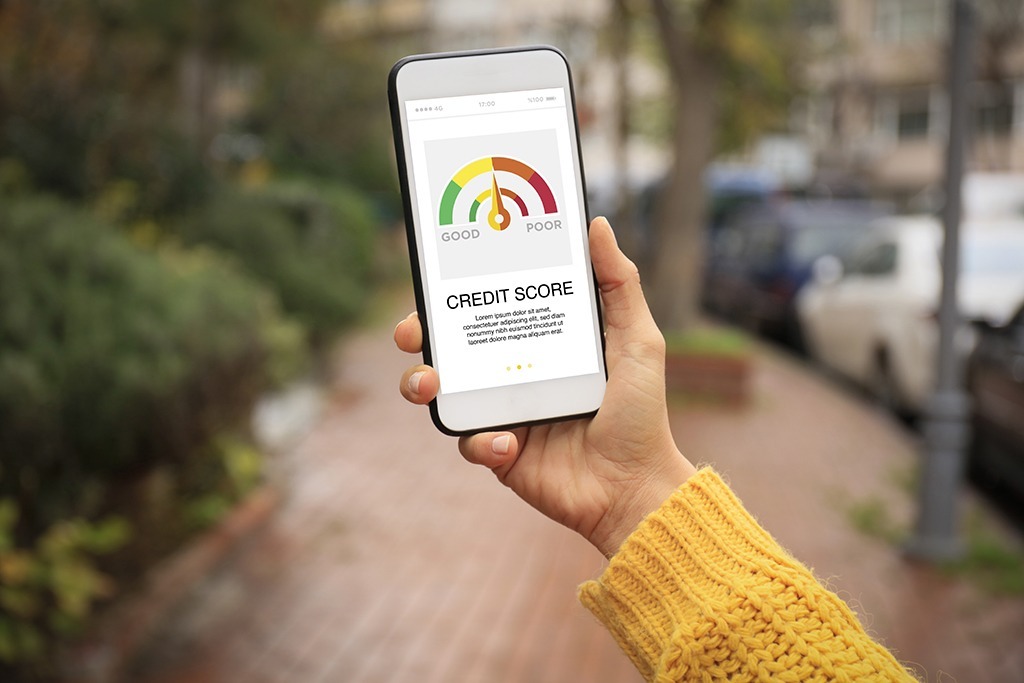On this page
What's next
Earn a high-yield savings rate with JG Wentworth Debt Relief
4 Strategic Ways to Use Credit Cards
by
JG Wentworth
•
January 12, 2023
•
8 min

The information on this blog is provided for educational and informational purposes only. Such information or materials do not constitute and are not intended to provide legal, accounting, or tax advice and should not be relied on in that respect. We suggest that you consult an attorney, accountant, and/or financial advisor to answer any financial or legal questions.
Although it’s relatively easy to sign up for a credit card when you have good credit, making the choice to get a new card is still a big financial decision that comes with risks. That’s why it’s important to know the best ways to use your credit cards to your advantage, so the rewards outweigh the risks!
So how can you get the most out of your credit cards? Here are four common ways that people use their credit cards strategically.
1. Build your credit

One of the best and simplest ways to use your credit cards strategically is to use them to build credit.
Building credit shows future lenders that you’re a reliable borrower who’s able to make payments on time. When you build your credit and improve your credit score, you’re more likely to be approved for car loans, apartment leases, mortgages, credit cards, personal loans , and more—and with more favorable terms, too.
Building credit with your credit card could look different depending on your needs and your willingness to borrow. Some common approaches to building credit with a card are:
- Buying one budgeted item a month with your card
- Putting all your budgeted monthly expenses on your card
- Making a large, one-time purchase and paying it off over time
Generally, experts recommend paying off your full credit card balance each month, if possible, so that you can stay out of debt. However, as long as you make at least your monthly minimum payment, you’ll still be building your credit history—and possibly boosting your credit score, too.
Related Article: A Guide to Everything You Want to Know About Credit
2. Rack up rewards

A lot of people think that credit cards should only be used in emergencies, and that’s a good rule of thumb if you’re hesitant to take on debt. However, using your credit cards for certain eligible purchases could help you reap major rewards—literally!
Many credit cards offer points or cash back on purchases like groceries, travel, gas, dining out, and more. If you’re looking to get the most from a credit card, it’s smart to choose one that offers rewards for the type of purchases you make most often.
Which is better—cash back or points?
Many credit card rewards programs include either cash back or points-based rewards. Both incentivize spending on your card, but there are pros and cons to each option. (To find out what rewards your cards offer and the exact terms for redeeming them, make sure to read your credit card agreements.)

Points are usually associated with travel rewards credit cards. (They’re also sometimes called “miles.”) While cash-back cards value your rewards as a percentage of what you’ve spent—such as 1%, or one cent, for every dollar you spend—most points-based cards offer more value for their redemptions. While some points cards allow you to redeem your points for cash back, you can typically redeem them for a higher value on particular types of purchases, like flights, hotels, and so on.
Getting the most from your points-based rewards card requires a somewhat complex credit card strategy, in part because these reward systems usually offer multiple bonuses, points, perks, and redemption options.
If you’re looking to get the highest possible value from your card, points-based rewards could help you do that. However, getting the most from your purchases using points requires some level of hands-on strategic planning.
Cash back
Redeeming cash-back rewards is relatively straightforward—and usually easier to figure out than redeeming points or miles. The dollars you spend have a set rewards rate associated with them, which can be redeemed in a few different types of ways:
- Statement credits
- Direct deposits to a bank account
- Gift cards
- Mailed checks
In fact, a lot of cash-back rewards cards give you the option of redeeming your rewards automatically, meaning your reward balance is applied to your credit card statement without your even having to think about it.
If you want to gain rewards for your purchases but also want to keep your approach to earning rewards relatively hands-off and simple, then cards that offer cash back are probably your best bet.
3. Credit card churning

Be forewarned: this one is controversial, largely because it’s very risky. That’s because it involves practices that are highly likely to negatively affect your credit score—or could even cost you money if you aren’t careful.
But with that said, credit card churning is still a common enough strategy for getting the most from credit cards. It’s up to you whether the associated risks are worth it.
What is credit card churning?
We talked above about taking advantage of the rewards your cards offer. But some people take it to the next level by churning cards. So what does it mean to churn credit cards?
Churning credit cards is the practice of signing up for multiple cards in order to receive their introductory bonus offers and then canceling the cards before you’re required to pay their annual fees.
Should I churn credit cards?
Only you can make informed decisions about your personal finances, so if you’re considering churning cards, it’s important to consider all the ways it could go wrong!
By applying to several credit cards, not only are you subjecting your credit score to multiple hard pulls, but you’re also shortening the average age of your credit. (Read more about why this could hurt your credit score here.)
Plus, even though churning credit cards seems like it’s a way to get free money, it requires a lot of planning. If you were to try churning cards, you’d need to have a strategy for meeting the spending requirement and paying back what you spent before the annual fees are due—plus, you’d have to remember when the due dates are to begin with! And since annual fees on premium cards can be hundreds of dollars, making a misstep with your churning plan could land you in the red.
Basically, if you already don’t have an incredible credit score and aren’t able to be extremely diligent about your card use, credit card churning is probably a bad idea for you. And even if you do have a great score and are a super organized spender, you never know what could happen. Churning credit cards has its pitfalls, so churn at your own risk.
4. Consolidate debt with a balance transfer

Balance transfer cards can be a useful tool if you’re having trouble managing your debt repayment across multiple credit cards. If you’d like the flexibility of making payments of different amounts, a balance transfer card could be a great debt repayment option for you.
Related Article: What’s the Difference Between Debt Consolidation and Debt Resolution?
Balance transfer vs. debt consolidation loans
Because balance transfer cards allow you to make flexible payments, they’re usually a debt consolidation option for people without a stable monthly income amount—i.e., freelancers, contractors, part-time hourly workers, or people who work for tips or commissions. With a balance transfer card, you could pay the minimum monthly payment one month and then hundreds of dollars the next month, depending on your cashflow.
You can also often get a great introductory APR deal on a balance transfer card—but those are usually only for a limited period. Plus, depending on the terms of your agreement, you could be stuck back-paying interest on the amount you haven’t already paid off when the promotional period ends.
Debt consolidation loans, on the other hand, are a great option for people with a set monthly income who want to make payments of the same amount every month. Getting a debt consolidation loan makes it easier to budget, because you’ll always know what you’re expected to pay each month, and you know exactly how long you’ll be making those payments.
Depending on your credit score, debt consolidation loans often offer low interest rates, so you could potentially save hundreds or even thousands of dollars in interest. This is an attractive alternative to the uncertainty of the low-APR introductory rates most balance transfer cards offer to rope borrowers in.
Related Article: 4 Signs Debt Consolidation Is Right for You
If you’d like to learn more about your debt consolidation loan options, JG Wentworth works with MoneyLion to generate loan offers for our customers in a minute or less. Explore your loan options today!
Sources cited
- Segal, T. (2021, July 29). What is cash back? hint: It’s not free money. Investopedia. Retrieved from https://www.investopedia.com/terms/c/cash-back.asp
- Robinson, M. (2021, December 28). Should I churn credit cards? Money Scoop. Retrieved from https://www.morningbrew.com/money-scoop/stories/2021/12/20/to-churn-or-not-to-churn
Want to hear more about debt solutions?
JG Wentworth could help you find the best solution for dealing with your mounting debt. Fill out the webform today and we’ll be in touch!
About the author
Recommended reading for you
*JGW Debt Settlement, LLC d/b/a JG Wentworth (“JG Wentworth”) has partnered with MoneyLion to provide this loan referral service. JG Wentworth is not a lender and cannot ultimately decide whether or not you are approved for a loan. JG Wentworth does not determine or influence the amount of money you may receive from using this referral services.
**The debt resolution program is provided by JGW Debt Settlement, LLC. JGW Debt Settlement, LLC is licensed/registered to provide debt resolution services in states where licensing/registration is required. Debt resolution program results will vary by individual situation. As such, it may not be suitable for all persons. JG Wentworth does not offer debt resolution services in all states and fees may vary from state to state. Not all debts are eligible for enrollment. Not all individuals who enroll complete our program for various reasons, including their ability to save sufficient funds. Savings resulting from successful negotiations may result in tax consequences, please consult with a tax professional regarding these consequences. The use of debt relief services can potentially have an adverse impact on your credit rating, may result in you being subject to collections, and may result in other adverse action by creditors or collection agencies. Read and understand the program contract prior to enrollment. JG Wentworth does not pay or assume any debts or provide legal, financial or tax advice or credit repair services. You should consult with independent professionals for such advice or services. Please consult with a bankruptcy attorney for more information on bankruptcy. JGW Debt Settlement operates in the following states: AL, AK, AZ, AR, CA, CO, FL, ID, IN, IA, KY, LA, MD, MA, MI, MS, MO, MT, NE, NM, NY, NC, OK, PA, SD, TN, TX, UT, VA, DC, and WI. If a consumer in CT, GA, HI, IL, KA, ME, NH, NJ, OH, RI, SC and VT contacts us we may connect them with a law firm that provides debt resolution services in their state.






